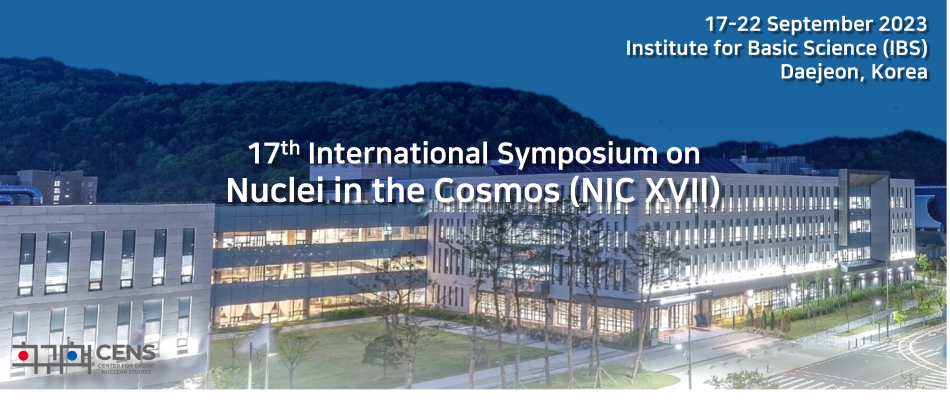Speaker
Description
The observed surface abundance distribution of Carbon-enhanced metal-poor (CEMP) r/s-stars suggests that these stars have been polluted by an intermediate neutron-capture process (the so-called i-process) occurring at intermediate neutron densities between the r- and s-processes. Triggered by the ingestion of protons inside a convective He-burning zone, the i-process could be hosted in several sites, a promising one being the early AGB phase of low-mass low-metallicity stars. The i-process remains however affected by many uncertainties including those of nuclear origin since it involves hundreds of nuclei for which reaction rates have not yet been determined experimentally.
We investigate both the systematic and statistical uncertainties associated with theoretical nuclear reaction rates of relevance during the i-process and explore their impact on the i-process elemental production, and subsequently on the surface enrichment, for low-mass low-metallicity stars during the early AGB phase.
We use the TALYS reaction code (Koning et al. 2023) to estimate both the model and parameter uncertainties affecting the photon strength function and the nuclear level densities, hence the radiative neutron capture rates. The impact of correlated systematic uncertainties is estimated by considering different nuclear models, as detailed in Goriely et al. (2022). In contrast, the uncorrelated uncertainties associated with local variation of model parameters are estimated using a variant of the backward-forward Monte Carlo method to constrain the parameter changes to experimentally known cross sections before propagating them consistently to the neutron capture rates of nuclei of i-process interest.
On such a basis, the STAREVOL code (Siess et al. 2006) is used to determine the impact of nuclear uncertainties on the i-process nucleosynthesis in a 1 M$_{\odot}$ [Fe/H] = - 2.5 model star during the proton ingestion event in the early AGB phase. A large nuclear network of 1160 species coherently coupled to the transport processes is solved to follow the i-process nucleosynthesis.
We show the importance of both statistical and systematic uncertainties with respect to the surface abundances in AGB stars and we identify and provide a list of reaction rates that would need to be better constrained in the future in order to improve our understanding of the i-process.

